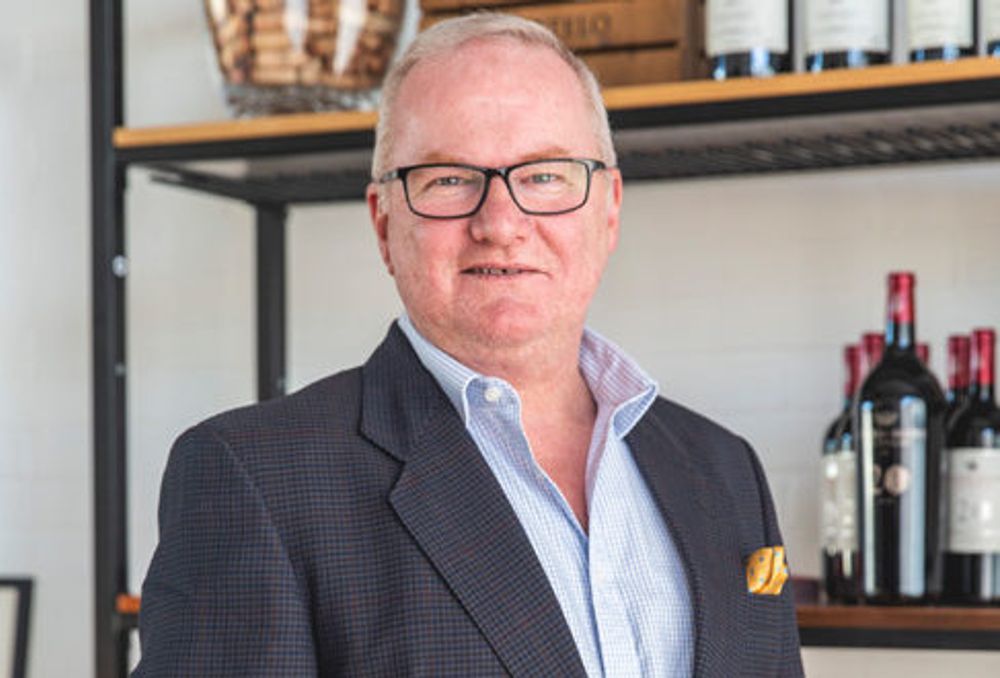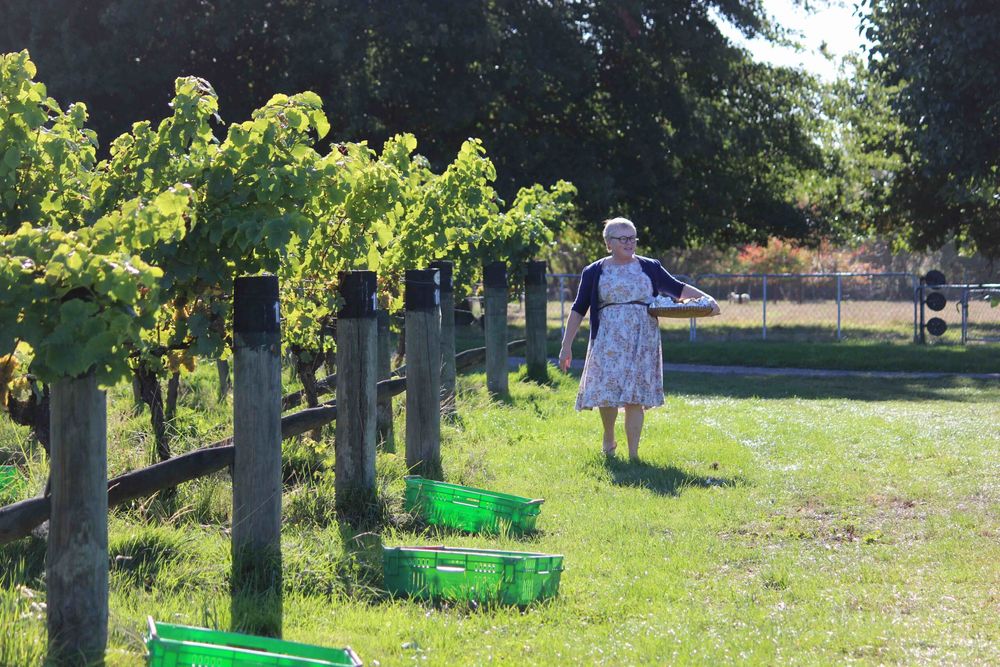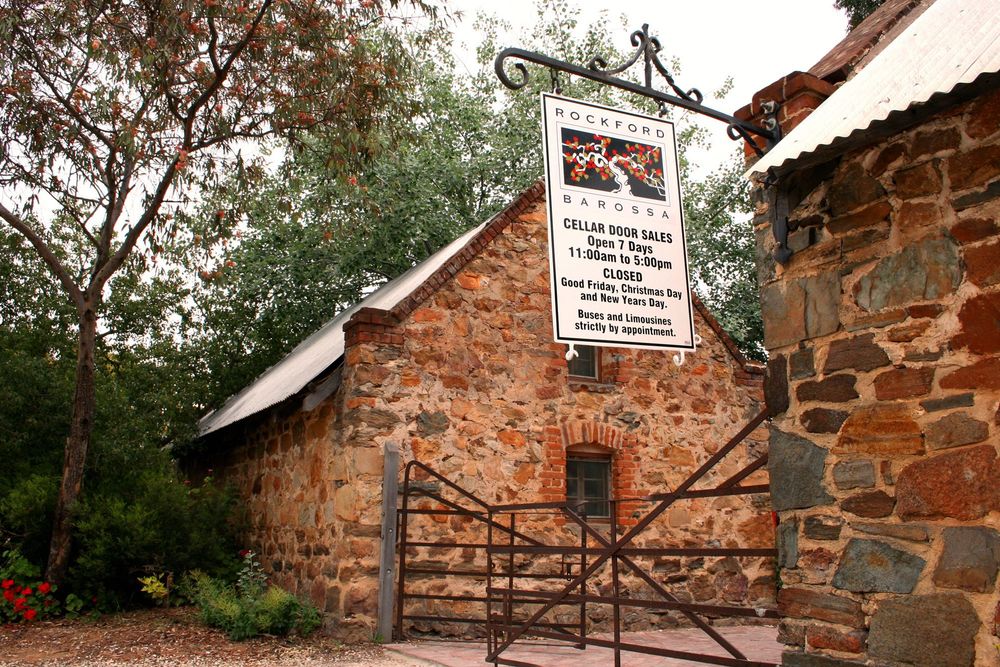Armit Wines has come a long way since it was taken over by Cordier By Invivo in 2017 and installed Brett Fleming to head up the business in 2019. Crucial to its turnaround has been an extensive recruitment strategy to freshen up its senior management team, including Fraser Currie as head of sales.
Whilst many in the wine trade resorted to putting on tin hats and bunkering down to get themselves through Covid-19, Armit Wines put its foot down on a turnaround strategy that was already well underway before lockdown struck in March 2020.
Looking back now its strategy to focus on refining and upgrading its range, re-engaging with both its producers and key customers, investing in more efficient routes to market and developing its sales channels was hardly revolutionary. But it shows how far Armit had fallen from its perch that just getting its basics right and then using that as a stronger foundation to then drive wider changes could have such a transformative impact on the company.
But this is not just a one or two year recovery programme, but a new way of working that will hopefully help the business achieve its mid and long term ambitions of moving from a £22m turnover business now, to £30m within the next five years and £50m in the next five to eight years.
To do that it will need to continue to invest not just in having the right wines and suppliers to work with, but the talent within Armit Wines capable of then selling, marketing and promoting those wines to the right sales channels and most relevant customers, be they in the trade or private clients.

Fraser Currie is a key member of the new senior management team at Armit Wines
Frasier Currie is one of a number of new senior management executives that Brett Fleming has brought into the business since he has been in charge. Individuals with the right experience and personality to drive and instigate the changes he wants to see in the business.
Currie’s career has already taken him on a tour of some of the leading names in the drinks industry including Laithwaites, William Grant & Sons and Accolade Wines, where he worked mainly in building national accounts with the major retailers. Crucially he also gained experience working in national accounts in FMCG, at Nomad Foods (Birds Eye) and food service at Brakes. Prior to joining Armit Wines he had helped introduce Indian beer brand, Bira 91, to the UK market.
When the opportunity came to join Armit in the summer of 2020 he jumped at the chance at getting back on the front line of the wine trade. He also knew he was joining a very different Armit Wines business.
“Armit has done some hard yards in the past and I was attracted by the great portfolio of producers it has and the chance to seize this great opportunity and see where we could take it. It’s a really exciting time to be here.”
His role is to manage Armit’s national, regional and on and off-trade sales teams. A pivotal role considering Armit’s new premium, targeted sales channel strategy.
Structure and efficiency
His initial brief was to bring structure and efficiency to Armit’s key trade sales divisions. To build a platform through which Armit could then start introducing a wider range of wines that were more relevant to a larger pool of customers. Be they the big supermarket giants, restaurant groups, or specialist independent wine merchants.
“We were over reliant on high scoring, award-winning wines,” he says. “We were not selling enough wines outside that.”
Now two years on Currie says he is confident they have collectively managed to “fix the leaky pipes and are well placed to “keep on running forward”.

Armit’s managing director Brett Fleming has helped transform the business and is on course to reach its target of achieving £30m turnover in the next five years
A position that now allows it to “take the ambition of our producers and connect it what the UK market needs”. Armit’s job is to make sure it matches its producers with the right customers across the most relevant sales channel, he says.
His national account contacts and experience has helped open some new doors at key premium retailers. It now, for example, has a good selection of premium wines in Waitrose, Marks & Spencer and Majestic where surprisingly it was not strong before.
“We are taking the capability of our producers and seeing what we can do with them. We are their mouthpiece. Their representative and need to be helping and maximising their opportunity in this market.”
It means re-examining what they can potentially do for each producer. Rather than in the past only work with a few wines in a producer’s range, there is now an opportunity to look at what other possibilities there are across all sales channels for what that producer could potentially do in the UK.
Changing perceptions
It’s not just within Armit that Currie and the management team have had to work hard to change attitudes, and ways of doing business, but they have also had to re-engage with the trade too, says Currie.
“People have long memories and we still have a long way to go in terms of changing the perception of Armit. It also highlights the fact this not a one year hit to change things around, but it needs a fundamentally different approach.
“We need to be talking to as many buyers as we can from a national perspective,” he adds. “We need to be giving them more opportunities to work with us. It’s about expanding those conversations into new areas – like own label.”

Key to Armit’s turnaround has been bringing in iconic producers from around the world like Simon Waghorn and Jane Forrest-Waghorn (pictured above) and their Astrolabe estate in New Zealand
This is where he thinks his long experience working with the major supermarkets has helped as “he knows how they operate and how they think” and he has also been able to pick up on old relationships, particularly, from his Accolade Wines days.
The first step, he says, was to ensure Armit was involved in any relevant tenders coming from the retailers for own label and exclusive projects.
“That’s where buyers really start to understand what you can do for them and what you have to offer.It’s also how you get to understand what the buyer is looking for as well. How you can go the extra mile for them. How can you give them a point of difference,” he explains.
Internally, he says, it has been about giving Armit’s regional team “leadership and commercial direction” whilst for the national accounts team it has been more of a case “of doing the hard yards and going round all the buyers and talking to them”.
It’s why he is particularly pleased to be winning more business with the likes of Booths and Oddbins, through European Food Brokers, and Laithwaites as it shows its mix of wines can also be relevant for specialist players outside the major supermarkets too. “The profile of their customers is also a good fit for Armit.”
It has also been about re-engaging with its producers so that they are fully aware of what is happening at Armit and “changing perceptions from a producer point of view as well as our customers”.
“It was initially a case of Brett being able to look them in the eye to say we are going to turn this around for you and thanking them for sticking with us.”
“Producers have new ambitions for their wines post Covid,” claims Currie. They have seen the new opportunities that have sprung up in different sales channels and want to see their wines being represented there too.”
Part of the process was also working out which producers were not the right fit for the new look Armit and parting ways.
“We are now in the fortunate position of having producers coming to us from our competitor set who want to work with us.”
But it is a delicate balance, stresses Currie. Whilst it is keen to work with as many premium producers as it can, it needs to be done in a tactical and commercial way. It also needs to ensure it does not water down what it is famous for – having the most relevant and comprehensive premium Italian wine portfolio in the UK.
The opportunity is more in identifying where the gaps in its range are, even in Italy, and listening to their customers’ needs and then going out to cherry pick the producers that can help fill them, be it in New Zealand, Spain, California or elsewhere.

Rockford in the Barossa Valley in Australia is one of a number of iconic producers around the world that have been added to Armit’s portfolio
It has, for example, added Rockford, the iconic Australian wine producer, Astrolabe the premium New Zealand winery in Marlborough and the highly respected Mendel from Mendoza in Argentina to its portfolio.
“It is bringing in the right producers that can complement and add to what we currently have. We also have to be true to them and their needs, as they have been very patient with us, and how we can expand our business with them too.
“We do, though, have exciting plans for Burgundy and how we can take our range to the next level. Burgundy is a big opportunity for us. We could also be doing more in Bordeaux.”
New talent
A key factor in Armit’s turnaround has been its ability to hire well and get the right skills and personalities into the company to help push its new strategy forward.
To get that right means having a lot of patience and being prepared to wait until the right person comes along, stresses Currie, who has been looking for a new addition to his London sales team for most of the year.
“We are looking for people with strong wine experience, but also the right commercial nous. Historically people have been too reliant on the wine skills,” he says.

Mendel in Argentina has also joined Armit Wines
The good news is a lot more talented and experienced people are interested in joining Armit than they were say five years ago. It’s just that talent pool is not very deep.
They also have to fit into the new culture that Fleming and his team have looked to develop at Armit Wines, says Currie.
“Everyone in the business lives and breathes wine, but also the service we have to provide to support the amazing portfolio we have. Culturally you have to be someone who is open minded and perhaps not the traditional and historical wine sales person. We want to work with people who are willing to grasp the opportunity we can offer them and help them grow in their role.”
He adds: “Part of the success of the business under Brett is that everything we do is for the long term.”
He is also, he says, looking to hire people who have different skills sets to himself, and can come with a “black book of contacts” and hit the floor running. “It’s exciting as well as we know we can help them grow and give them the responsibility, the time and the support they need to do that.”
As for the company as a whole Currie is also looking forward to how “commercially we can take the business to another level”.
“We have got an amazing portfolio of producers. Now it is a case of controlling our growing and making it sustainable rather than chasing volume. This is now the most exciting time as we have done the hard yards and are now in a position where we can maximise what we can do with our producers in the UK.”
- Armit Wine is a partner supplier to The Buyer. You can find our more about what they can offer the on-trade and premium off-trade here.






























